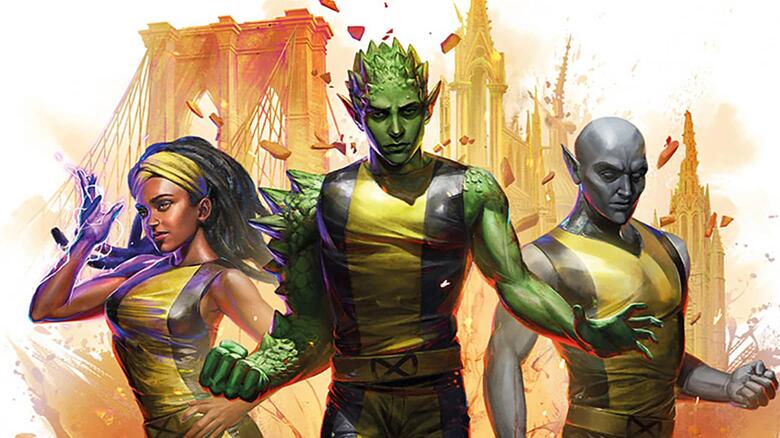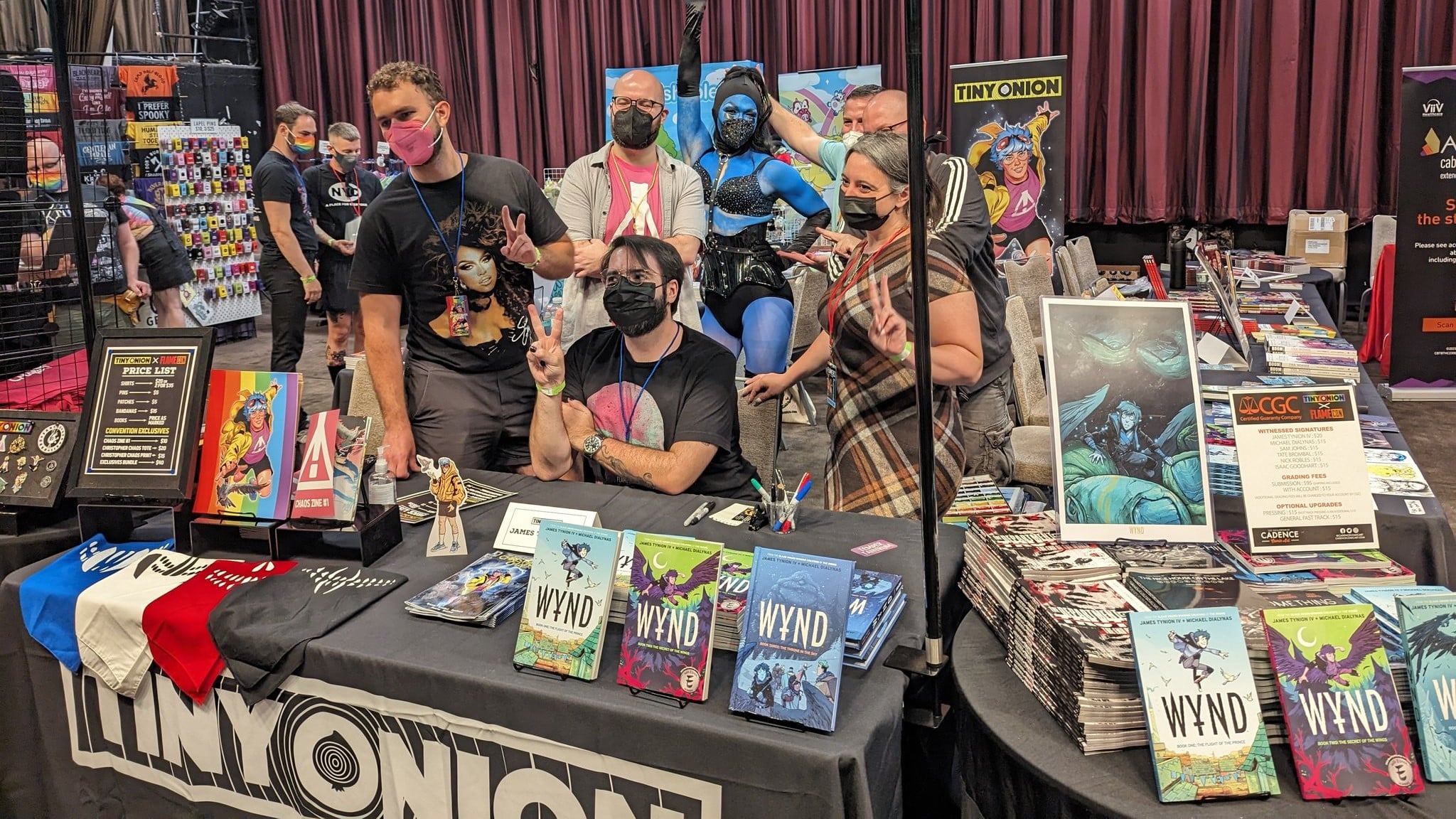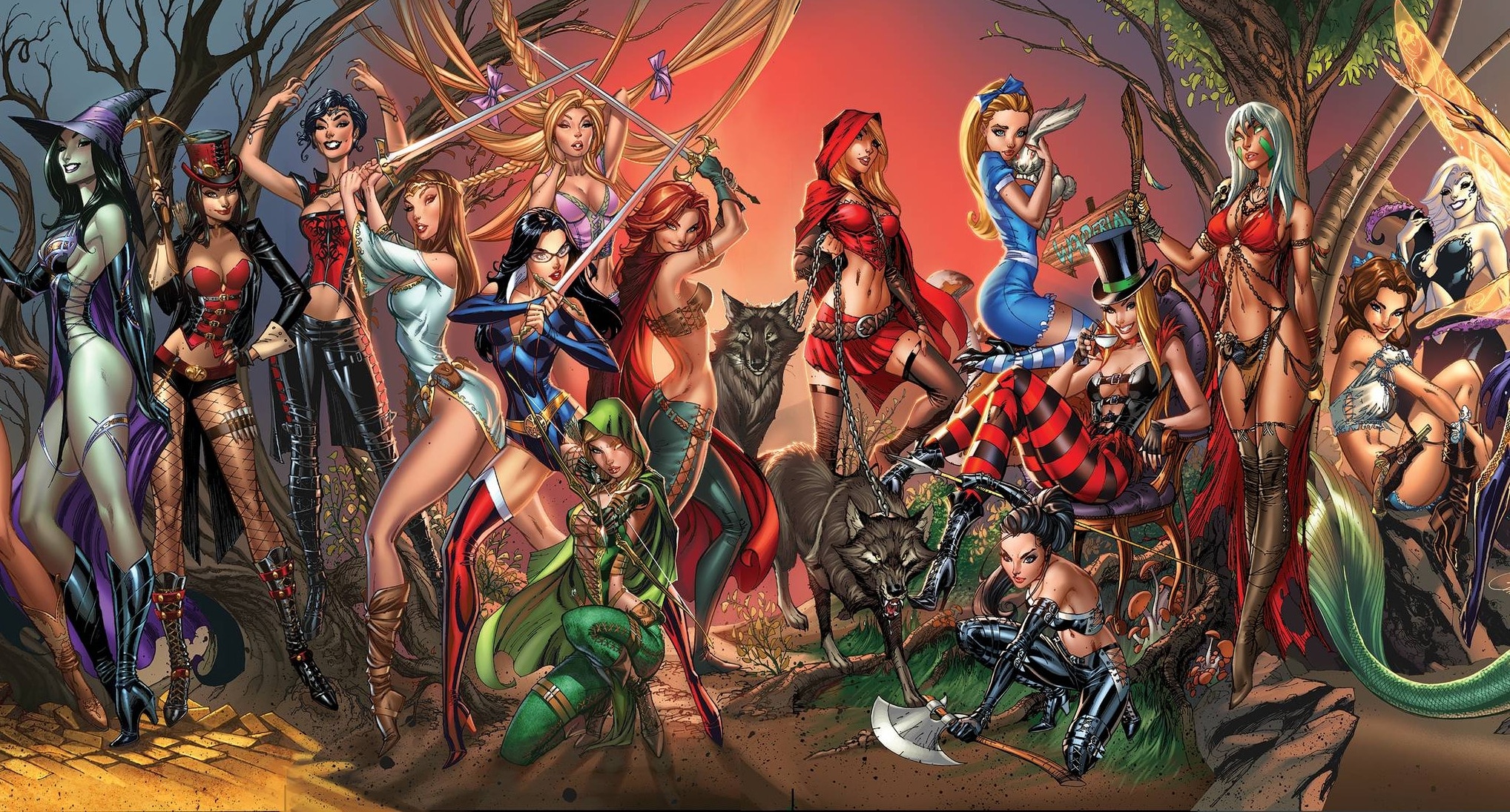Robbie MacNiven has spent several years writing licensed novels for franchises like Warhammer 40k. Today marks his first foray into the world of X-Men with First Team: A Marvel: Xavier’s Institute Novel from Aconyte Books. He sat down to talk to the ComicsXF team about the title.
Zachary Jenkins: What’s your background with comics, and X-Men specifically?
Robbie MacNiven: Before this project, my comics background was embarrassingly light. Growing up in small village in the Scottish highlands, I can’t say there were any actually comic book stores nearby. What I did have access to, thankfully, was the 90s X-Men cartoon series, which proved to be my first encounter with the X-Universe. When I landed the novel I used it as a spur to get into the actual comics. I tracked down as many as I could featuring Anole – even if it was just his early cameos. I glad to say that research has awakened a more general love for comics that I suspect has been lying dormant for some time. I’ve been getting into the amazing Wolverine: Black, White & Blood, which is just gorgeously done.
ZJ: You have a spent the last few years writing Warhammer 40K titles. How do you have to shift your writing when jumping between that and a YA focused book like First Team?
RM: It’s perhaps not as huge of a leap as people might expect. Both, for example, have similar policies on swearing, and the emphasis when it comes to things like bloodshed aren’t hugely different – it just has to be handled with a lighter touch. It was a refreshing change of pace though. Warhammer 40,000 is, famously, the originator of the phrase “grimdark,” so writing a story based on hope and family was almost a new experience. I don’t think it required a particular change in actual writing style overall, just an awareness of what the characters were saying and doing and how the wider plot would turn out.
ZJ: What can you do in a prose story with these characters that you couldn’t do in comics?
RM: Really get into the characters heads. While it’s possible to convey thought processes and emotions in comics, doing so in prose allows for a true deep-dive. It was a somewhat nerve-wracking experience, as entering a character’s consciousness and setting out their prevailing thoughts and feelings can risk alienating readers if they don’t seem to hit the same tone as the characters they’re used to from the comics. Hopefully my research has made them seem familiar even in a completely different style of writing, but only the fans can decide that.

ZJ: This story centers around Anole, Cipher and Greymalkin. What drew you to them specifically? Do you have a soft spot for the Marc Guggenhiem Young X-Men?
RM: I do, and the whole concept of the Xavier’s Institute was something I wanted to get onboard with right away. Anole is the sort of character you see mentioned a lot when people talk about minor heroes they’d like to see more of. It was clear early on that, as a charming, witty and fun kid, he’d be an enjoyable character to write about, but the same was true for Cipher and Graymalkin, for their own reasons. The latter in particular is essentially an eighteenth-century guy living in a twenty-first century world, and as a historian of eighteenth-century American history I had a lot of fun looking at things from his own rather unique perspective.
ZJ: You have two queer characters in the main cast. What do you want to say about the intersectionality between their mutant identity and their queer identity?
RM: The struggle for mutant identity and queer identity is obviously one of the foundational elements of the setting. I thought it was important to keep that running throughout the whole plot without always making it the sole focus. Queer readers have told me that they enjoy the platonic element of Anole and Graymalkin’s interactions, that it’s a positive to have two queer characters who display a deep friendship and solidarity without the plot requiring them to develop a romantic relationship. I also wanted to look at how these two characters came from opposite ends of the spectrum as far as their coming out experiences were concerned. Anole had the rare luxury to grow up in a home that was completely accepting of both his queerness and his nature as a mutant, whereas Graymalkin was literally attacked and buried alive by his father. That contrasts was something I wanted to ponder as the book went on. Both Vic and Gray are “out” mutants too insomuch as their abilities aren’t things they can hide – they appearing physically different, and looking at how they handle stigma and bigotry directed at them for something as simple as their appearance was another aspect of their lives that I wanted to emphasise in the novel.
ZJ: What kind of reader are you trying to reach with this book? Who do you think would get the most out of it?
RM: I’m really hoping that long-time comic book fans of Anole, Cipher, Greymalkin, Rockslide and/or any combination thereof enjoy the book. Ultimately though I hope it tells an engaging enough story that anyone, be they comic readers or someone not even familiar with the X-Men setting, can pick it up and take something away from it. The central themes of family (found or not) and acceptance are things that I think are timeless in their importance, so hopefully they shine through.
Zachary Jenkins co-hosts the podcast Battle of the Atom and is the former editor-in-chief of ComicsXF. Shocking everyone, he has a full and vibrant life outside all this.






